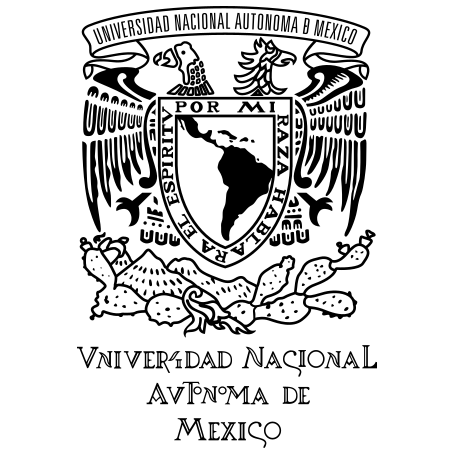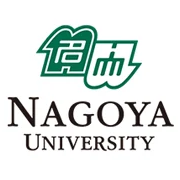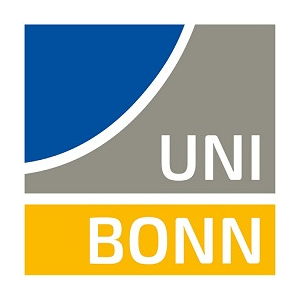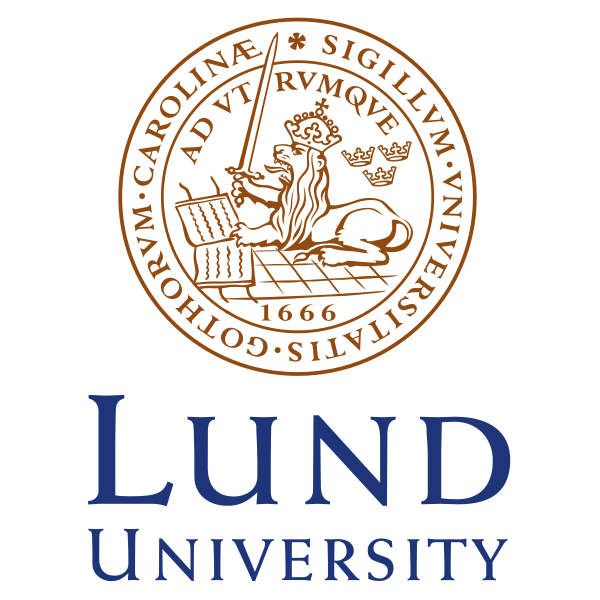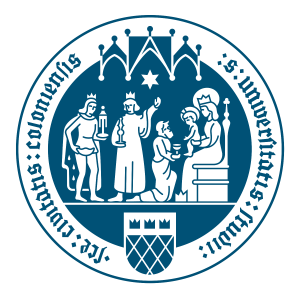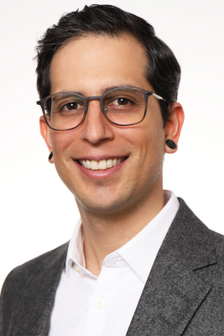
Photo (Dec 2020): Birgit Palgen
Mathematical Insitute
Faculty of Mathematics and Natural Sciences
University of Cologne
Contact
Visiting and postal address
Mathematical Institute
University of Cologne
Weyertal 86-90
D-50931 Cologne
Germany
Building 162, office 1.14
Telephone number: +49 221 470 3715
Office hours: by appointment
Secretary: Leah Manzanilla
E-mail address
In order to ensure that your messages are read, please contact me only through the following e-mail address:
gjasso[at]math.uni-koeln.de
Any other institutional e-mail addresses of mine have been or will be closed.
PGP key fingerprint
I sign all outgoing e-mail messages using PGP.
My public key fingerprint is the following:
7527 92FC FE23 2132 1A9A 62C1 F655 F8F8 B671 FC89
Download public key (keys.openpgp.com) | What is PGP?
About me
Pronouns: he / him
I am a mathematician. My research interests include the following topics:
- Representation theory of quivers and algebras
- Homological and homotopical algebra, higher category theory
- Cluster algebras and their categorifications
If you are interested in learning about my research but you are not a mathematician, you might be interested in this Snapshot. This snapshot is also available at the website IMAGINARY, which I also recommend. You can also download the slides of a talk based on this snapshot.
Academical profiles
arXiv.org | Google Scholar | MathSciNet | ORCID | Web of Science | zbMATH Open
Open positions
You are welcome to inquire about upcoming advertisements of positions in the Algebra and Representation Theory Group, but please note that applications are handled through official channels.
Please do not send me unsolicited application materials. For security reasons, I will not open unsolicited files.
For prospective doctoral students
The Hypatia Network for Equality has prepared a brochure with useful information for prospective doctoral students in Mathematics and Informatics
Curriculum vitae
Download my abridged CV (comprehensive CV available upon request).
Including my student years, I have been affiliated to the following institutions during my academical career:
2025-04-01 – 2027-03-31 Head of Division, Mathematical Institute of the University of Cologne.
Since 2024-08-15 Universitätsprofessor für Algebra (W2) at the Faculty of Mathematics and Natural Sciences of the University of Cologne.
2024-04-09 Grant to recruit a foreign researcher for a postdoctoral position in Sweden, Knut and Alice Wallenberg Foundation. Declined.
2023-01-01 – 2024-08-01 My research was supported by a Research project grant within natural and engineering sciences from the Swedish Research Council (Vetenskapsrådet).
2022-10-15 11th Award for Encouragement of Alumni and Students (“Hida Award”), Alumni Association of the Graduate School of Mathematics, Nagoya University.
2022-03-01 – 2024-08-14 Senior Lecturer at the Centre for Mathematical Sciences (Faculty of Science) of Lund University.
2018-08-13 International Conference on Representations of Algebras (ICRA) Award 2018 (a second prize was awarded to Julian Külshammer).
2017-10-01 – 2022-02-28 Akademischer Rat auf Zeit at the Mathematisches Institut of the Rheinische Friedrich-Wilhelms-Universität Bonn working in the research group of Prof. Dr. Jan Schröer.
2014-10-01 – 2017-09-30 Hausdorff Postdoc at the Hausdorff Center for Mathematics of the Rheinische Friedrich-Wilhelms-Universität Bonn under the mentorship of Prof. Dr. Jan Schröer.
2011-10-01 – 2014-09-29 Ph.D student at the Graduate School of Mathematics of Nagoya University under the supervision of Prof. Dr. Osamu Iyama.
2010-11-03 Premio Sotero Prieto 2010 (three bachelor’s theses were recognised).
2005-08-15 – 2011-09-14 B.Sc. and M.Sc. student at the Facultad de Ciencias (B.Sc.) and the Instituto de Matemáticas (M.Sc.) of the Universidad Nacional Autónoma de México under the supervision of Michael Barot (B.Sc. and M.Sc. thesis advisor) and Prof. Dr. Christof Geiß (M.Sc. thesis unofficial second advisor).
1987-03-18 Born in Guadalajara, Jalisco, Mexico.
Remark
My full (legal) name, formed according to the Spanish Naming Customs (used also in Mexico), is Gustavo Jasso Ahuja. Note, however, that I do not utilise my second last name in any professional context.
Editorial work
- Algebras and Representation Theory, Mar 2025–
Activities
Cologne Algebra and Representation Theory Group
I am a member of the Algebra and Representation Theory Group at the University of Cologne. Visit the link to learn about our activities.
Köln Algebra and Representation Theory Seminar (Oberseminar)
Upcoming events
MFO Workshop: Representation Theory of Quivers and Finite-Dimensional Algebras
Past events
- ARTA X: Advances in Representation Theory of Algebras
- Parallel session on 'Homological Algebra' at the 29th Nordic Congress of Mathematicians with EMS
- XIX International Conference on Representation Theory of Algebras (Online)
- Junior Trimester Program (JTP) on 'New trends in representation theory'
- Hausdorff Summer School on Stability Conditions in Representation Theory
- Workshop: A-infinity structures in geometry and representation theory
- Spring school: Cluster Algebras in Mathematical Physics (CAMP)
Monday Seminar on Higher Structures
Our research group meets every Monday 10:00-11:30 during the lecture period to hold informal discussions led by one of the participants on topics related to higher structures, or to present our ongoing research. For more information please see the course catalogue.
Learning seminar on Higher Category Theory
Together with Bernhard Keller (Université Paris Cité) I organise an online Learning Seminar on Higher Category Theory and its Applications to Algebra and Geometry. At the moment this is private seminar; if you are interested in participating please contact either Bernhard or myself by e-mail.
FDLIST
Since May 2021, I am one for the maintainers of the FDLIST, an information list that provides a forum for the exchange of information, ideas, problems and questions, which are related to representation theory of finite-dimensional algebras.
FD Seminar
I was one for the organisers of the FD Seminar, an online seminar on representation theory of quivers and finite-dimensional algebras. The seminar ran from May 2020 until May 2024.
Writings
Preprints
- Jasso, G., Muro, F., The Derived Auslander-Iyama Correspondence II: Bimodule Calabi-Yau Structures. arXiv:2509.22625 [math.RT]
- Jasso, G., Muro, F., Obstruction theory for A-infinity bimodules. arXiv:2507.17568 [math.AT] (submitted)
- Jasso, G., Muro, F., The Derived Auslander–Iyama Correspondence, with an appendix by B. Keller. arXiv:2208.14413 [math.RT] (submitted)
Publications
- Jasso, G., Q-shaped derived categories as derived categories of differential graded bimodules. arXiv:2501.08255 [math.RT] (accepted for publication in Ann. Represent. Theory)
- Jasso, G., On a theorem of B. Keller on Yoneda algebras of simple modules. C. R. Math. Acad. Sci. Paris, Volume 362 (2024), 1449-1453.
Publication | arXiv | MathSciNet | zbMATH - Jasso, G., Derived equivalences of upper-triangular ring spectra via lax limits. C. R. Math. Acad. Sci. Paris, Volume 362 (2024), 279-285.
Publication | arXiv | MathSciNet | zbMATH - Dyckerhoff, T., Jasso, G., Lekili, Y., The symplectic geometry of higher Auslander algebras: symmetric products of disks. Forum Math. Sigma, Volume 9 (2021), Paper No. e10, 49.
Publication | arXiv | MathSciNet | zbMATH - Dyckerhoff, T., Jasso, G., Walde, T., Generalised BGP reflection functors via the Grothendieck construction. Int. Math. Res. Not. IMRN (2021), Issue 20, 15733-15745.
Publication | arXiv | MathSciNet | zbMATH - Dyckerhoff, T., Jasso, G., Walde, T., Simplicial structures in higher Auslander–Reiten theory. Adv. Math., Volume 355 (2019), 106762.
Publication | arXiv | MathSciNet | zbMATH
Errata: In 1.10 and 1.11 the endomorphism algebras should be their opposites. In the line after 1.14 'right' should be 'left'. In the proof of Prop. 1.17, '(left)' should be '(right)' and the factors of the tensor product should be commuted. In Remark 2.29, the symbol S_{m}^{n+1} should be be replaced by S^{n+1}. - Jasso, G., Külshammer, J., Higher Nakayama algebras I: Construction, with an appendix by J. Külshammer and Ch. Psaroudakis and an appendix by S. Kvamme. Adv. Math., Volume 351 (2019), 1139-1200.
Publication | arXiv | MathSciNet | zbMATH - Jasso, G., Kvamme, S., An introduction to higher Auslander-Reiten theory. Bull. Lond. Math. Soc., Volume 51 (2019), Issue 1, 1-24.
Publication | arXiv | MathSciNet | zbMATH - Demonet, L., Iyama, O., Jasso, G., τ-tilting finite algebras, bricks, and g-vectors. Int. Math. Res. Not. IMRN (2019), Issue 3, 852-892.
Publication | arXiv | MathSciNet | zbMATH
Note: Over an algebraically closed field of characteristic 0, statement (b) in Theorem 1.7 was shown by Derksen and Fei in Proposition 6.1 of their article General presentations of algebras. - Iyama, O., Jasso, G., Higher Auslander correspondence for dualizing R-varieties. Algebr. Represent. Theory, Volume 20 (2017), Issue 2, 335-354.
Publication | arXiv | MathSciNet | zbMATH - Jasso, G., n-abelian and n-exact categories. Math. Z., Volume 283 (2016), Issue 3-4, 703-759.
Publication | arXiv | MathSciNet | zbMATH
Errata: (S. Kvamme) In Lemma 3.22, the adverbs 'contravariantly' and 'covariantly' should be exchanged in items (vi) and (vii). In Theorem 4.14 the ambient additive category should be assumed to be weakly idempotent complete so that the class Y is closed under weak isomorphisms, see Section 8 in Kvame's paper for the correct statement in the non-weakly-idempotent-complete case. - Bergh, P. A., Jasso, G., Thaule, M., Higher n-angulations from local rings. J. Lond. Math. Soc. (2), Volume 93 (2016), Issue 1, 123-142.
Publication | arXiv | MathSciNet | zbMATH - Jasso, G., τ²-stable tilting complexes over weighted projective lines. Adv. Math., Volume 273 (2015), 1-31.
Publication | arXiv | MathSciNet | zbMATH
Errata: The first sentence in page 23 should read '… all semistable sheaves of a fixed slope …' This has no bearing in the argument since the only thing that is used is that every indecomposable rigid sheaf lies in an exceptional tube. - Jasso, G., Reduction of τ-tilting modules and torsion pairs. Int. Math. Res. Not. IMRN (2015), Issue 16, 7190-7237.
Publication | arXiv | MathSciNet | zbMATH - Jasso, G., The extended affine Lie algebra associated with a connected non-negative unit form. J. Algebra, Volume 409 (2014), 148-161.
Publication | arXiv | MathSciNet | zbMATH - Barot, M., Geiss, Ch., Jasso, G., Tubular cluster algebras II: Exponential growth. J. Pure Appl. Algebra, Volume 217 (2013), Issue 10, 1825-1837.
Publication | arXiv | MathSciNet | zbMATH
Remarks
- My Ph.D. thesis comprises articles [3-4] and [6].
- My master’s thesis comprises part of article [1].
- My bachelor’s thesis comprises article [2].
Proceedings, extended abstracts and other writings
- Jasso, G., Krause, H., Schroll, S., Rickard's Derived Morita Theory: Review and Outlook. arXiv:2509.06369 [math.RT] (submitted)
Note: Contribution to the 100th anniversary volume of the J. Lond. Math. Soc. - Jasso, G., Muro, F., Minimal A-infinity algebras of endomorphisms: The case of dZ-cluster tilting objects. arXiv:2508.18852 [math.RT] (submitted)
Note: Contribution to the proceedings of the XXI International Conference on Representations of Algebras (ICRA 21). - Jasso, G., Brackets, trees and the Borromean rings. Snapshots of modern mathematics from Oberwolfach, Volume 2025.
Publication - Jasso, G., Universal Massey Products in Representation Theory of Algebras. In: Keller, B., Krause, H., Lowen, W., Solotar, A., (.eds), Hochschild (Co)Homology and Applications: Abstracts from the workshop held April 14–19, 2024, Oberwolfach Rep. 21 (2024).
Publication | MathSciNet | zbMATH | PDF - Jasso, G., Derived Endomorphism Algebras in Higher Auslander–Reiten Theory. In: Amiot, C., Crawley-Boevey, W., Iyama, O., Schröer, J., (.eds), Representation theory of quivers and finite-dimensional algebras: Abstracts from the workshop held January 12–18, 2023, Oberwolfach Rep. 20 (2023).
Publication | MathSciNet | zbMATH | PDF
Errata: In point (2) of the second theorem, the degree 0 part of B must be basic self-injective. - Jasso, G., Keller, B., Muro, F., The Donovan–Wemyss Conjecture via the Derived Auslander–Iyama Correspondence. In: Bergh, P. A., Oppermann, S., Solberg, Øyvind, (.eds), Triangulated categories in representation theory and beyond. The Abel Symposium 2022, Abel Symposia, Springer Cham (2024) 105-140.
Publication | arXiv | MathSciNet | zbMATH - Jasso, G., The symplectic geometry of higher Auslander algebras, an overview. In: Amiot, C., Crawley-Boevey, W., Iyama, O., Krause, H., (.eds), Representation theory of quivers and finite dimensional algebras: Abstracts from the workshop held January 19–25, 2020, Oberwolfach Rep. 17 (2020) 143-230.
Publication | MathSciNet | zbMATH | PDF - Jasso, G., Higher Auslander algebras of type A and the higher Waldhausen S-constructions. In: Šťovíček, J., Trlifaj, J., (.eds), Representation theory and beyond, Contemp. Math. 758, Amer. Math. Soc., Providence, RI (2020) 249-265.
Publication | arXiv | MathSciNet | zbMATH - Jasso, G., Külshammer, J., Nakayama-type phenomena in higher Auslander-Reiten theory. In: Leuschke, G. J., Bleher, F., Schiffler, R., Zacharia, D., (.eds), Representations of algebras, Contemp. Math. 705, Amer. Math. Soc., Providence, RI (2018) 79-98.
Publication | arXiv | MathSciNet | zbMATH - Jasso, G., Spherical objects in higher Auslander–Reiten theory (joint work with J. Külshammer). In: Crawley-Boevey, W., Iyama, O., Krause, H., (.eds), Representation Theory of Quivers and Finite Dimensional Algebras: Abstracts from the workshop held February 19–25, 2017, Oberwolfach Rep. 14 (2017) 591-681.
Publication | MathSciNet | zbMATH | PDF - Jasso, G., Külshammer, J., The naive approach for constructing the derived category of a d-abelian category fails. arXiv:1604.03473 [math.RT] (not intended for publication)
- Jasso, G., Reduction of τ-tilting modules and torsion classes. In: Proceedings of the 16th Workshop on Representation Theory of Algebraic Groups and Quantum Groups (2013) 157-160. | PDF
- Jasso, G., Cluster-tilted algebras of canonical type and quivers with potential. In: Proceedings of the 45th Symposium on Ring Theory and Representation Theory (2012) 61-68.
Publication | PDF - Jasso, G., Cluster-tilted algebras of canonical type and graded quivers with potential. In: Proceedings of the 15th Workshop on Representation Theory of Algebraic Groups and Quantum Groups (2012) 13-18. | PDF
Co-authors
Michael Barot | Petter A. Bergh | Laurent Demonet | Tobias Dyckerhoff | Christof Geiß | Osamu Iyama | Bernhard Keller | Henning Krause | Julian Külshammer | Sondre Kvamme | Yankı Lekili | Fernando Muro | Yann Palu | Sibylle Schroll | Marius Thaule | Tashi Walde
Resources
Below are the notes/slides from some of my talks and also a poster. Click on the titles to open/download the corresponding PDF file.
- Length categories and their taxonomy. The Legacy of Peter Gabriel. Bielefeld University, Germany (2025).
- Minimal A-infinity algebras of endomorphisms. XXI International Conference on Representations of Algebras (ICRA). Shanghai Jiao Tong University, China (2024).
- The Donovan–Wemyss Conjecture via the Derived Auslander–Iyama Correspondence. McKay correspondence, Tilting Theory and Related Topics. Kavli IPMU, Kashiwa, Japan (2023).
- Auslander’s Formula for stable infinity-categories, after Klemenc. Representation theory and non-commutative geometry/ARTIG 3. Paderborn, Germany (2023).
- Exact infinity-categories. Current trends in representation theory, cluster algebras and geometry. CIRM-Luminy, Marseille, France (2023).
- The Donovan–Wemyss Conjecture via the Derived Auslander–Iyama Correspondence. . Casa Matemática Oaxaca, Mexico (2023).
- Quivers, quivers and more quivers. Maths Student’s Day. Lund, Sweden (2023).
- (Non-)uniqueness of strong DG enhancements. Combinatorial aspects of Representation Theory. Oslo, Norway (2023).
- (Non-)uniqueness of strong DG enhancements. New Directions in Group Theory and Triangulated Categories. Online seminar (2023).
- Brackets, trees and the Borromean rings. Lund Mathematics Colloquium. Lund, Sweden (2022).
- The Donovan-Wemyss Conjecture via the Derived Auslander–Iyama Correspondence. Geometric Representation Theory Seminar. YMSC, Beijing, China (2022).
- The Triangulated Auslander–Iyama Correspondence. Algebra Days in Paris in honor of Bernhard Keller. IHP, Paris, France (2022).
- The Triangulated Auslander–Iyama Correspondence. 28th Nordic Congress of Mathematicians. Helsinki, Finland (2022).
- The Triangulated Auslander–Iyama Correspondence, part I. Abel Symposium 2022, Ålesund, Norway. (2022).
Notes of part II by F. Muro (external link) - La conjectura “optimista” de Lekili y Polishchuk. Coloquio Oaxaqueño de Matemáticas. Oaxaca, Mexico (2022).
- The Triangulated Auslander–Iyama Correspondence. Online Workshop on Higher Dimensional Homological Algebra. IPM-Isfahan, Iran (2022).
- Generalised BGP reflection functors. . Bielefeld, Germany (2021).
- Homotopical algebra in exact (infinity-)categories. 2021 London Mathematical Society Northern Regional Meeting and Conference (A conference in celebration of the work of Bill Crawley-Boevey). Bielefeld, Germany (2021).
- The Waldhausen S-dot construction and the symplectic geometry of surfaces and their symmetric products. Opening Workshop (IRP Higher Homotopical Structures). CRM Barcelona, Spain (2021).
- Universal properties of derived categories, after Lurie. BIREP Seminar. Bielefeld, Germany (2021).
- Deriving a theorem of Ladkani. Flash Talks in Representation Theory at NTNU. Trondheim, Norway (2021).
- Partially wrapped Fukaya categories of symmetric products of marked disks. Winter School: Connections between representation theory and geometry. Bonn, Germany (online event) (2020).
- Stable infinity-categories: localisations and recollements:. ‘Two Weeks of Silting’ Summer School. Stuttgart, Germany (2019).
Exercises - Higher-dimensional Auslander algebras of type A and the higher-dimensional Waldhausen S-constructions. XVIII International Conference on Representations of Algebras (ICRA). Prague, Czech Republic (2018).
- d-homological algebra. Panorama of Mathematics. Bonn, Germany (2015).
- tau-tilting reduction. XV International Conference on Representations of Algebras (ICRA). Bielefeld, Germany (2012).
- The extended affine Lie algebra associated with a connected non-negative unit form. XIV International Conference on Representations of Algebras (ICRA). Tokyo, Japan (2010).
Research group
Ph.D. students
- Marvin Plogmann (01/2024 - )
- Jan Henrik Thomm (10/2022 - )
Remarks
- The supervisions of students 1 and 2 began at Lund University.
Co-supervised Ph.D. students
- Mika Norlén Jäderberg (10/2023 - )
Linköping University.
Advisor : Dr. Erik Darpö. - Edoardo Tacchetti (10/2026 - )
Università degli Studi di Verona.
Advisor : Prof. Dr. Rosanna Laking.
Master students
- Philip Matura, On the Gerstenhaber bracket in Hochschild cohomology (since October 2025)
- Eric Dannetun, Quotients of triangulated categories (2024)
Aftwerwards : PhD position with Dr. Samuel Lundqvist at Stockholm University. - Daniel Falkowski, A note on tensor-triangular geometry (2024)
Aftwerwards : PhD position with Prof. Dr. Alexander Berglund at Stockholm University. - Carl-Fredrik Lidgren, t-structures & recollements (2023)
Aftwerwards : PhD position with Prof. Dr. Sarah Scherotzke at the University of Luxemburg. - Martin Böhm, Cluster algebras and knot polynomials (2021)
- Jona Klemenc, The stable hull of exact infinity-categories (2020)
Aftwerwards : PhD position at the Technische Universität München. - Calvin Pfeifer, Torsion classes and wide subcategories (2020)
Aftwerwards : PhD position with Prof. Dr. Christof Geiss at the University of Southern Denmark. - Jan-Paul Lerch, Bijections in tau-tilting theory (2019)
Aftwerwards : PhD position with Prof. Dr. Henning Krause at Bielefeld University. - Aran Tattar, On Gorenstein k-categories (2018)
Aftwerwards : PhD position with Prof. Dr. Sibylle Schroll at the University of Leicester.
Remarks
- Students [7-8] were supervised at Lund University.
- Students [1-5] were supervised at the University of Bonn.
Bachelor students
- Arthur Faxén, The Barr-Beck Mondadicity Theorem (2024)
- Bror Persson, Introduction to Auslander-Reiten Theory (2024)
- Sebastian Westerlund, Hall algebras (2024)
- Erik Christmansson, Gentle algebras (2024)
- Diego González Pérez, Elements of Abelian categories. The Yoneda Ext and the Baer Sum (2024)
- Yijia Zeng, Frieze patterns (2023)
- Felix Anton Brandt, Decomposition theorems for persistence modules (2021)
- Tanja Helme, Cluster-Algebren und Kettenbrüche (2020)
- George Tyriard, A Morita-theoretic proof of the Dold-Kan correspondence (2020)
- Aaron Wild, Lurie’s differential graded nerve is a right Quillen functor (2020)
- Roman Höffken, Morita Theorie für Ringe und Kategorien (2020)
- Vincent Siebler, The derived category of a gentle algebra (2019)
Remarks
- Students [7-12] were supervised at Lund University.
- Students [1-6] were supervised at the University of Bonn.
Publications by research group members
Publications by current and past students and members of the research group.
- Plogmann, M., Complicial simple-minded collections. arXiv:2603.03122 [math.RT]
- Mochizuki, N., Plogmann, M., On the Auslander–Reiten Theory for Extended Hearts of Proper Connective DG Algebras. arXiv:2505.16560 [math.RT]
- Klemenc, J., The stable Hull of an exact ∞-category. Homology Homotopy Appl., Volume 24 (2022), Issue 2, 195–220.
Publication | arXiv | MathSciNet | zbMATH - Asai, S., Pfeifer, C., Wide Subcategories and Lattices of Torsion Classes. Algebr. Represent. Theory, Volume 25 (2022), 1611–1629.
Publication | arXiv | MathSciNet | zbMATH
Visitors
- Javier Díaz Cabrera, Apr-Jul 2026 (Sevilla)
- Mika Norlén Jäderberg, Apr-Jul 2026 (Linköping)
- Jonathan Lindell, Oct-Dec 2025 (Uppsala)
- Dr. Norihiro Hanihara, Jan 2025 (Kyushu)
- Dr. Tashi Walde, Dec 2024 (Regensburg)
- David T. Nkansah, Sep-Dec 2024 (Aarhus)
- Prof. Dr. Catharina Stroppel, May 2024 (Bonn)
- Prof. Dr. Bernhard Keller, Oct 2023 (Paris)
- Sebastian H. Martensen, Oct 2023 (Trondheim)
Research Group Photographs
WS 2025/2026
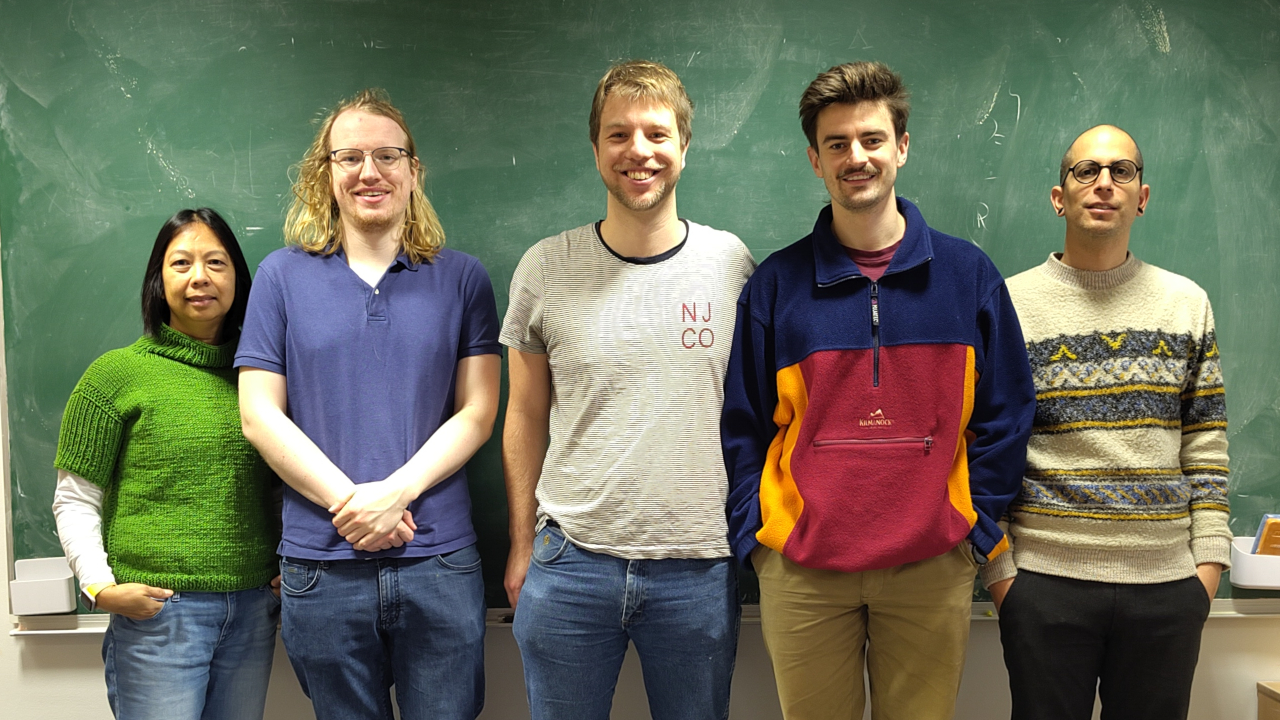
[2025-12-18] Leah Manzanilla, Jan Thomm, Jonathan Lindell (guest), Marvin Plogmann, Gustavo Jasso
WS 2024/2025

[2025-10-28] David Nkansah (guest), Marvin Plogmann, Jan Thomm, Gustavo Jasso, Leah Manzanilla
Teaching
Detailed information on my current teaching activities can be found in the course catalogue.
Information on the seminars organised by the Algebra and Representation Theory Group can be found at the following URL: https://www.mi.uni-koeln.de/RepTheory/
@UzK students: Please write me an e-mail if you are interested in writing a bachelor’s or master’s thesis under my supervision.
Teaching at the University of Cologne (since 2024)
- Winter Semester 2026/2027 Algebra und Zahlentheorie
- Winter Semester 2026/2027 Seminar: Kombinatorische Themen in der Darstellungstheorie von Köchern
- Sommer Semester 2026 Homotopy theory of simplicial sets
- Sommer Semester 2026 Seminar: Cluster Algebren
- Winter Semester 2025/2026 Derived categories of differential graded categories
- Winter Semester 2025/2026 Seminar: Kategorientheorie
- Sommer Semester 2025 Introduction to infinity-category theory
- Sommer Semester 2025 Seminar: Tilting Theory
- Winter Semester 2024/2025 Homotopy theory of simplicial sets
- Winter Semester 2024/2025 Seminar: Auslander-Reiten Theory
Teaching at Lund University (2022-2024)
- Summer Term 2024 MATP33 Group and Ring Theory
- Fall Term 2023 MATP43 Representation Theory of Quivers and Algebras
- Fall Term 2023 MATM35 Number Theory
- Spring Term 2023 MATP33 Group and Ring Theory
- Fall Term 2023 MATM35 Number Theory
Teaching at the University of Bonn (2016–2021)
- Winter Semester 2021/2022 S4A2 Graduate Seminar on Representation Theory - Tilting theory
- Sommer Semester 2021 V5A2 Selected topics in Algebra - Differential graded categories
- Summer Semester 2019 S4A2 Graduate Seminar on Representation Theory - Triangulated categories in the representation theory of finite-dimensional algebras
- Sommer Semester 2018 S4A2 Graduate Seminar on Representation Theory - τ-tilting theory
- Winter Semester 2016/2017 V5A5 Advanced Topics in Representation Theory - Differential graded categories, a representation theoretic approach
